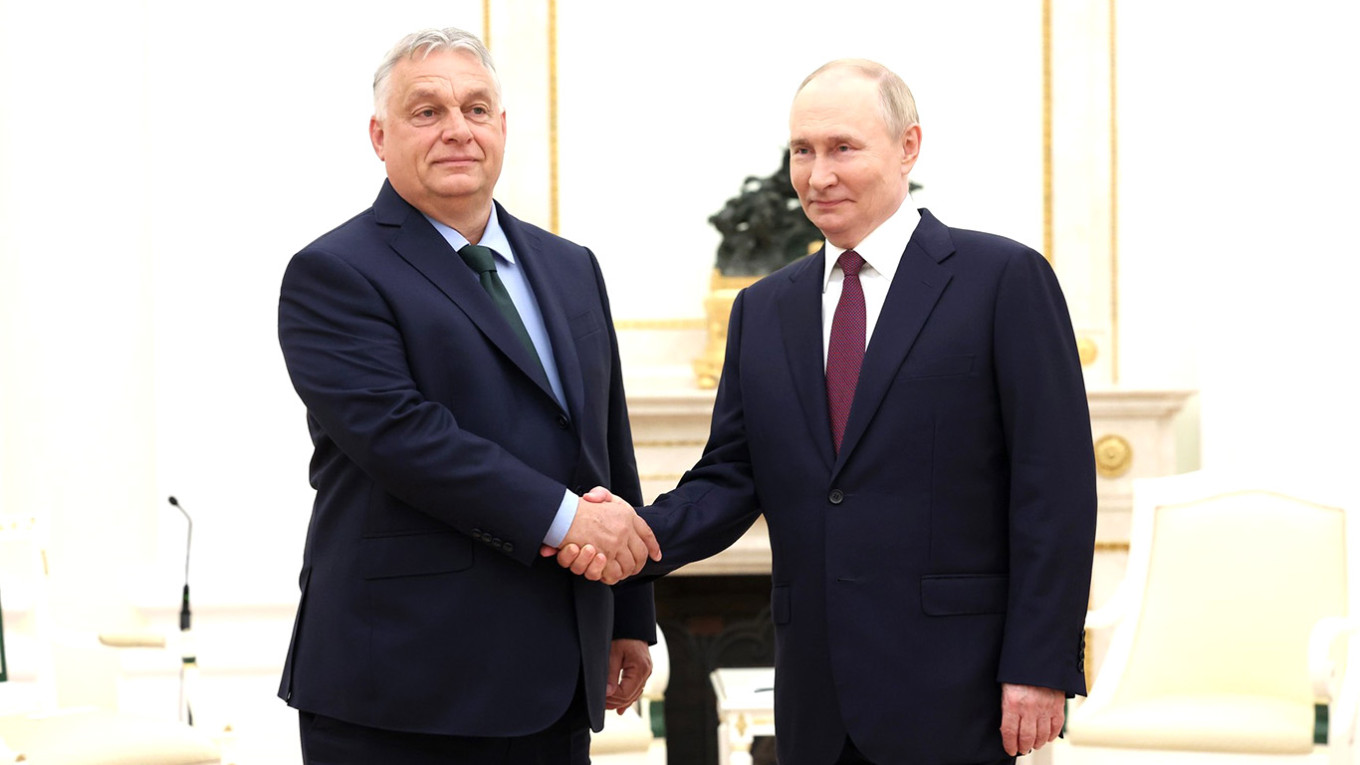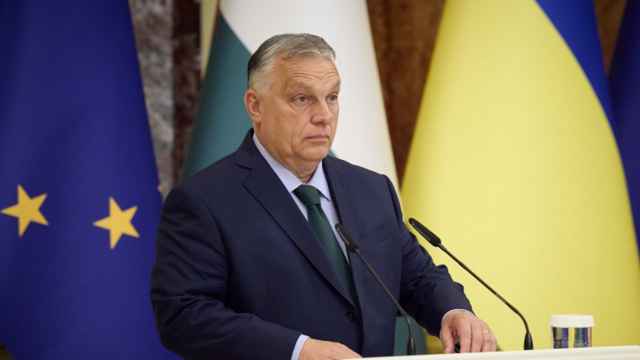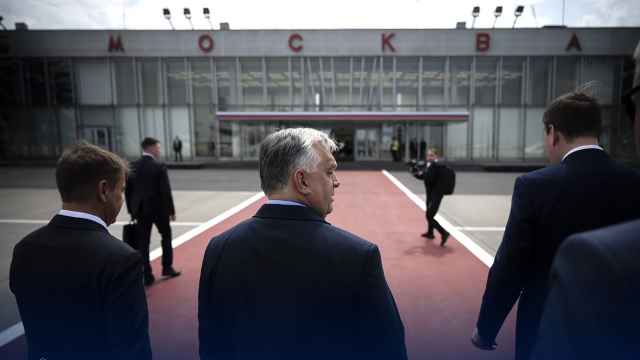Hungarian Prime Minister Viktor Orban has called on European Council President Charles Michel to resume diplomatic relations with Russia, the German newspaper Bild reported Monday, citing a letter written by the populist leader following his recent foreign trips that sparked anger in Brussels.
Orban — whose country this month took over the rotating EU presidency — visited Ukraine, Russia, China and the U.S. as part of his self-described “peace mission” aimed at ending Russia’s war on Ukraine. His talks with President Vladimir Putin enraged fellow EU leaders, with EU officials ordered Monday to skip a series of meetings in Hungary in response.
According to Bild, Orban predicted that the war in Ukraine would “radically intensify” in the near future, but speculated that Republican U.S. presidential candidate Donald Trump would “immediately be ready to act as a peace mediator” if he wins in November.
He also reportedly wrote that a Trump election victory would “significantly change to the detriment of the EU” the financial burden of support for Ukraine shared by the U.S. and the EU.
Orban also urged Michel to approach China about a “peace conference” and launch a “political offensive” to re-engage Global South countries that he claimed have “lost” respect toward the EU because of its support for Ukraine, Bild wrote.
Previous reporting on Orban’s letter to Michel suggested that Putin and Chinese President Xi Jinping “assume” that Russian-Ukrainian peace talks would be held by the end of 2024.
The EU has staunchly opposed Russia's war and slapped 14 rounds of sanctions on Moscow. Its members have expelled hundreds of Russian diplomats since the February 2022 invasion of Ukraine.
But Hungary has repeatedly stalled the bloc's efforts to punish the Kremlin and to aid Ukraine in its fight against invading Russian forces.
AFP contributed reporting.
A Message from The Moscow Times:
Dear readers,
We are facing unprecedented challenges. Russia's Prosecutor General's Office has designated The Moscow Times as an "undesirable" organization, criminalizing our work and putting our staff at risk of prosecution. This follows our earlier unjust labeling as a "foreign agent."
These actions are direct attempts to silence independent journalism in Russia. The authorities claim our work "discredits the decisions of the Russian leadership." We see things differently: we strive to provide accurate, unbiased reporting on Russia.
We, the journalists of The Moscow Times, refuse to be silenced. But to continue our work, we need your help.
Your support, no matter how small, makes a world of difference. If you can, please support us monthly starting from just $2. It's quick to set up, and every contribution makes a significant impact.
By supporting The Moscow Times, you're defending open, independent journalism in the face of repression. Thank you for standing with us.
Remind me later.






